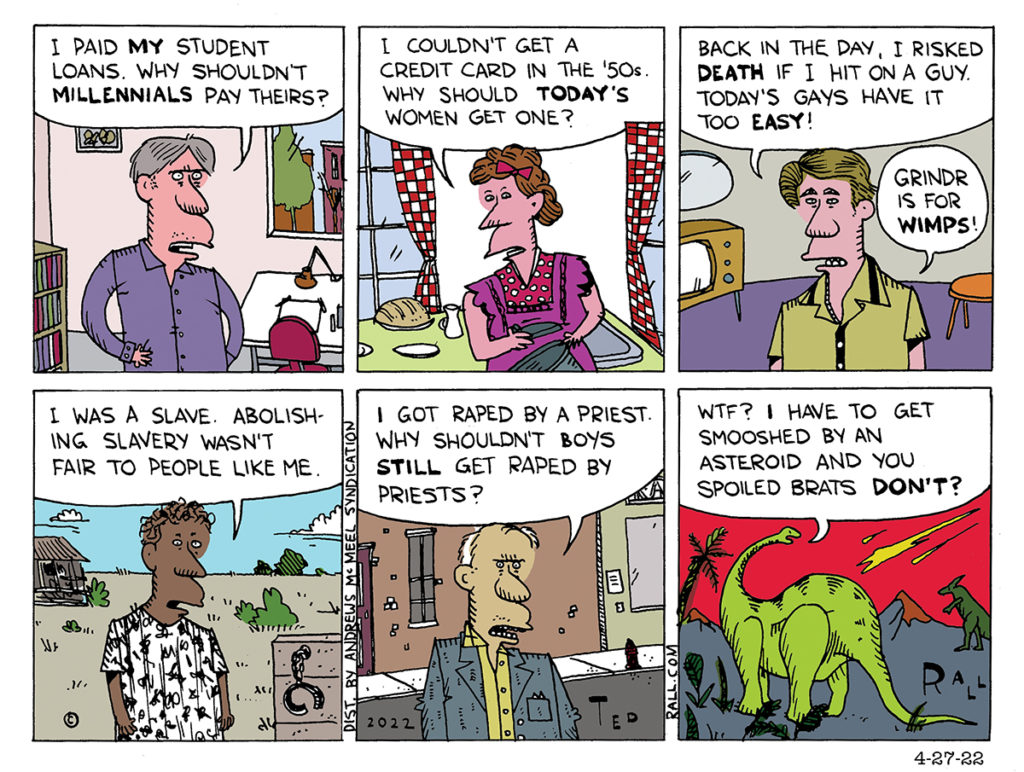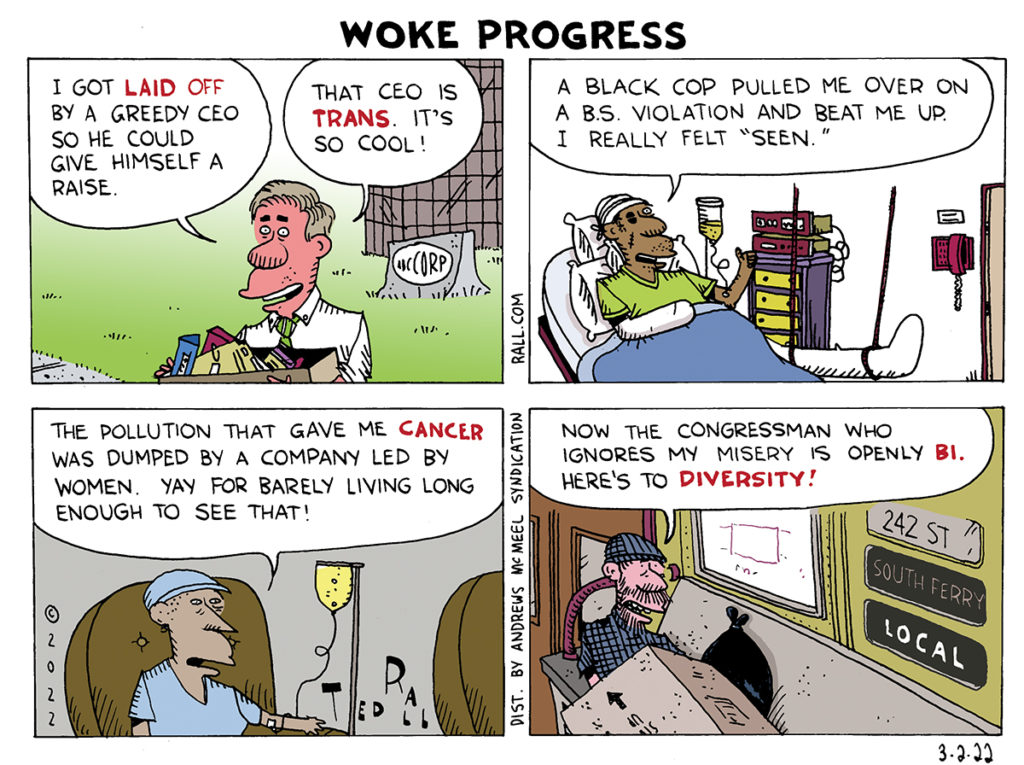Syndicated Editorial Cartoonists Ted Rall (from the Left) and Scott Stantis (from the Right) analyze the issues and news changing our world. This week’s podcast is entirely dedicated to a historic week of opinions handed down by the Supreme Court of the United States.
First up, a look at a pair of landmark cases affecting higher education. Ted and Scott put into perspective the court’s decision to end race-based Affirmative Action and President Biden’s Student loan forgiveness program. Ted concisely explains the basis for the build-up of resentment over decades towards Affirmative Action and what led to the court’s ruling. Scott takes a victory lap after arguing for months that Joe Biden’s Student Loan Forgiveness program was executive overreach and should and would be struck down.
Next up, a pair of cases impacting the workplace: the Postal Worker and the Web Designer,(which sounds a lot like a really lame Hallmark Christmas romance movie). The mailman refused to work on his Sabbath; the web designer refused to create a site for a LGBTQ couple. When does common sense check bigotry? Scott and Ted’s spin on these decisions may surprise you.
In the last segment, Ted and Scott applaud the court shooting down, yet again, Independent State Legislature Theory (ISL), which would have allowed states to set up draconian voting procedures that would have served to deny ballot access to millions of voters.. They end up tying everything up in a neat little bow. You should listen.
Watch the Video Version of the DMZ America Podcast:
DMZ America Podcast Ep 106 Sec 1: Supreme Court Overturns Race-Based Affirmative Action
DMZ America Podcast Ep 106 Sec 2: The Cases of the Postal Worker and the Web Designer
DMZ America Podcast Ep 106 Sec 3: Death to the Independent State Legislature Theory







